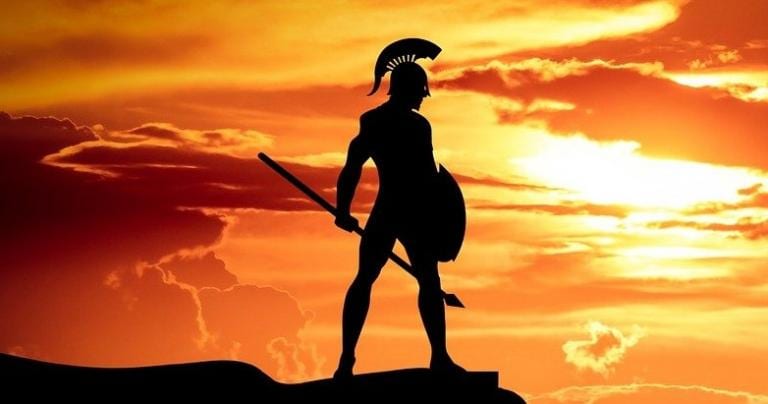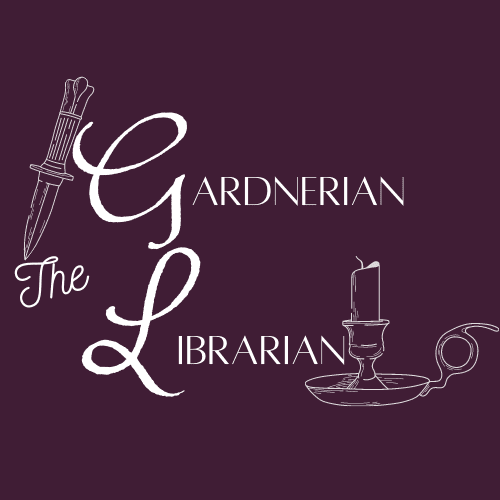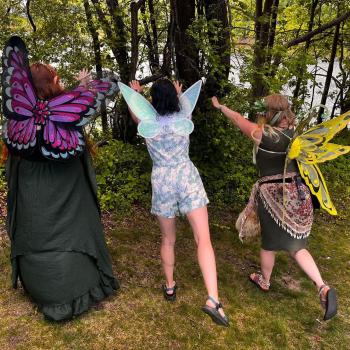Information bias in the pagan community is real, whether we admit it or not. The proof is in how we hold certain authors in higher esteem than others, including specific publishers, social media influencers, and websites. For some individuals, information outside of a prescribed list of sources is out of the question. The issue with bias is that it can prevent us from broadening our horizons in terms of experiential knowledge. It can also lock us into one mode of thinking when it comes to our traditions and practices. Bias can make us feel that any idea that deviates from our internalized, accepted beliefs isn’t one worth considering.
When we are victims of our own biases, we create an environment in which we surround ourselves with people and ideas that mirror our own. Social media feeds are excellent examples of biases at work because we can customize and curate nearly everything that shows up in them according to our likes and dislikes. Don’t like Donald Trump fans and what they stand for? Block ’em.
Every single one of us has, at some point in our lives, created a vacuum in which we only interact with people just like us. It’s normal to seek experiences and people that validate our biases because it’s simpler to do than challenge our beliefs. Our brains are wired to work off biases, which can either be positive or negative, according to an article in Psychology Today. Cognitive biases, defined as “repeated patterns of thinking that can lead to inaccurate or unreasonable conclusions”, are particularly difficult to break (Psychology Today, “Bias”).
Pagan Authority & Heroes
Certain individuals, dubbed “Big Name Pagans” by some, have been given preferential treatment on pagan podcasts, in books, on pagan websites, and on social media. They’re viewed as authorities in paganism, whether they accept it or not. Often, their word is construed to be final on many matters in our communities, particularly social issues. Many pagans, especially newbs, have adopted the biases of their pagan heroes because they’ve placed our trust in them. We view them as reliable sources of information and authorities in their field. Is there anything wrong with that? Yes and no.

Some pagan heroes mistakenly use their position to influence their followers’ feelings towards certain individuals, traditions, and opinions. Let’s consider the Traditional Witchcraft vs. Traditional Wicca debate. There are some Big Name Pagans who choose to rail on Wicca like it’s their job, desiring to draw as many differences between what they do and what Wiccans do. The reason behind the railing is understandable — they’re tired of being lumped in with Wicca – but they’re using their public platforms to create stereotypes and biases in a big way. Newbs won’t understand the nuances, though, and neither will people looking to validate their own biases against Wicca.
Paganism Has No Rulers

Shouldn’t we trust in those individuals who’ve earned authority in their field? In matters related to scholarship, yes. In matters related to personal opinions, no. Just because a person holds authority in one aspect does not give them authority in everything. Paganism is not a kingdom to be ruled by a select few. I may be a High Priestess in the Gardnerian Wicca but I don’t use my position to speak for all Gardnerians (not that I could – Gardnerians are an opinionated bunch).
Pagan celebrities are somewhat unofficially vetted by our community as being less crazy than the rest of us. Many of them give validity to and humanize the pagan community for outsiders. We should want people out there representing our community in positive ways, and most Big Name Pagans do just that. They’re brave enough to put their faces out there for the rest of the world to see. We should commend them for that but not hero-worship them because of it.
Peer Review and Pagan Publishing
Academic publishers require certain hoops to be jumped through before you can get your shit published. As an author, you need to have a degree in the field in which you’re researching and publishing. You also need to find peer-reviewed journals that will accept your work. “Peer review” is a process whereby academics get their research reviewed by a body of their peers. “Peers” in this case are other, vetted scholars in the same field as the author. To get published in a peer-reviewed journal is important, as it means that other academics found your research valuable to your shared field.

While there isn’t a peer-review process for publishing pagan books, publishing companies do have their own standards for accepting and publishing new works. The process may not be as rigorous as peer review, but it’s nothing at which to snub our noses. For pagan authors, their “review process” really comes after their books are published. Readers essentially take on the roles of a pagan author’s “peers”, whether that’s a good thing or a bad thing.
Academic journals allow authors to edit and resubmit their research if it didn’t quite make the cut the first time. Traditional book publishing follows an editing process, but the editors are rarely fellow scholars. Pagan authors, on the other hand, are at the mercy of their readers. These readers claim all sorts of authority on any number of subjects, eliciting quite a few groans and eyerolls from the rest of us.
Performative Paganism
There’s no singular solution for curbing the information biases many of us hold in this community. Perhaps we could work on a culture that encourages diversity in opinions and desires to hear more from “regular” people. Some of us need to get away from this idea that only a few speak for us all. Diversity in practice and opinion would deliver a more rounded understanding of modern paganism, too. We could also achieve a better understanding of our complex community through better representation of Black, Indigenous and People of Color (BIPOC).

There seems to be this unspoken desire to obtain the coveted “influencer” status on the Internet, though. People get paid for that shit. I get it. Pagan influencers showcase just how much of their time they’ve given to being pagan with their carefully-edited photos of piles of books, altars and tools, and spell candles. That it’s all been worth it in some regard. The Internet is something like a digital gravestone where we hope to highlight our greatest achievements for all to see, long after we’re gone. In the pagan world, we utilize our social media accounts to prove how much magic we’re doing, how many books we’re reading, and all the pagan celebs we know.
A friend and I talked about how we wish certain pagan podcasts would do more than just interview pagan celebrities. If our creative content is centered around pagan celebs then what does it say about that content? What does it say about our community? It says, “we’re only concerned with who and what we know in this community and not what we do.”
Similar Thoughts from Other Patheos Authors
There have been several other Patheos bloggers who have written on the damaging aspects of bias in the pagan community, including:
Thorn Mooney: “Don’t Put Other Witches on Pedestals”
Mortellus: “Psst… I’m an impostor”
Jason Mankey: “Big Name Pagans”
John Beckett: “What They Don’t Want You To Know”
Speaking of Influencers…
Follow me on Instagram @thegardnerianlibrarian !














